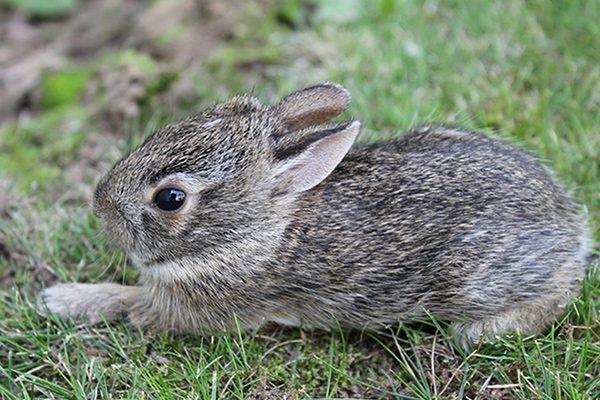I hurried home from work to try to beat the dark rain clouds that were heading in my direction. I had many things I needed to do, and wanted to feed all the bunnies and guinea pigs their night time salads before starting on my projects. As I headed to the refrigerator for their leaf lettuce, kale, cilantro and parsley, the tornado sirens began to sound in my area. There was a confirmed tornado on the ground headed straight for our neighborhood. Time to head to the basement!
Because of facing this scenario some years ago, we already had some plans on how to quickly relocate the bunnies, guinea pigs, chinchillas, and our three rescue dogs to the basement. Carriers are always stacked neatly in the garage, and towels used to line the carriers are folded next to the washing machine. I grabbed the largest carrier and calmly loaded my family of 5 chins inside and took them to the basement. The others followed in their carriers, and I keep pens in the basement that can be quickly set up to house the upstairs bunnies and guinea pigs. The entire process took me about 15 minutes.
We keep extra water crocks and lots of cotton throw rugs downstairs in case of this kind of emergency. I store all the pelleted feed for everyone in the basement already, and a box of hay is easily accessed in the garage. We have a large refrigerator in the basement that holds the fresh greens for the bunnies and guinea pigs.
AJ, Baxter, Ace and Arnold were very happy to eat their salads after missing them the night of the tornado
Thankfully none of the four tornadoes that were in our area landed a direct hit on your house. If you find yourself facing a similar situation, here are some suggestion to help you be better prepared:
Preparedness Checklist
A week’s worth of food for each animal. Be sure to include treats that your pets enjoy, as this may be a comfort to them during the stress of an emergency or a natural disaster.
Keep fresh bottled water handy in case your water is cut off. You’ll want plenty for each pet and for yourself.
If any pets are on medication, you’ll want to have those handy. I usually store my medications in one area so I can quickly grab what I need in an emergency. For medications that require refrigeration, a small ice chest can be used if you lose electricity. Ice can usually be found at a Red Cross shelter. I also keep reusable ice packs in my freezer at all times.
Have current pictures of all your animals. Microchipping is also a great way to identify your pets. If you have dogs or cats, always keep their collars on them so they can be easily identified if you become separated. And don’t forget to grab the hamster, gerbil, rat, or mouse cages if any of those babies are a part of your family.
Ask a neighbor or friend who lives nearby to check on your animals in case you are not home when a disaster occurs. We have someone near us who has a key to our house “just in case” and knows where our pets are in our house.
Have carriers for each bunny, guinea pig, or chinchilla in case you have to relocate everyone. I have larger carriers that easily hold a bonded pair of bunnies, a pair of chinchillas, or a group of guinea pigs. I try to keep pairs and groups together as much as possible. Traveling together will relieve some of the stress from being relocated.
Identify several shelters, animal hospitals, pet friendly hotels, boarding kennels, or temporary homes with family or friends in case you must evacuate.
Know where the animal shelters are in your area in case some of your pets are missing. They may have ended up in a shelter. After the devastating F5 tornado in Joplin, Missouri in 2011, MOHRS took in 5 rabbits that were rescued during the aftermath of the tornado. Sadly, no one from Joplin ever came looking for them, perhaps because they didn’t think the bunnies had survived.
Be sure to include some of your pet’s favorite toys. They may be comforted by something familiar when everything else is totally unfamiliar.
Provide a lot of TLC for your animals. Remember, they are just as upset and scared as you are. Cuddling and petting can help them feel better, and can calm you down as well.
 MOHRS
MOHRS